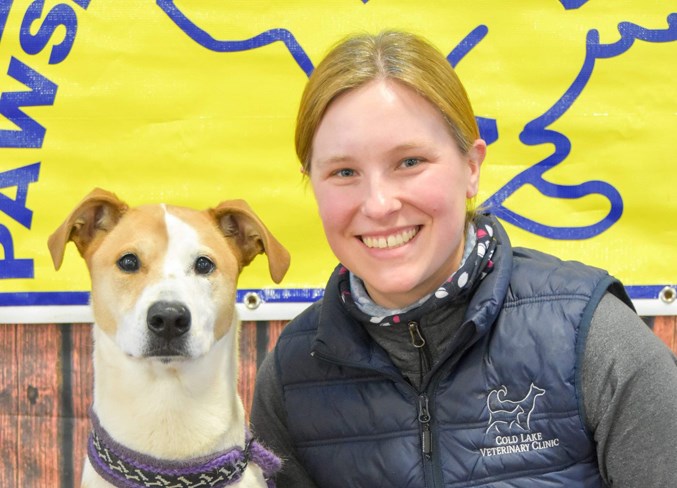Local veterinarians and breeders are divided with the recent push to ban cosmetic surgeries in cats and dogs.
The Alberta Veterinary Medical Association (ABVMA) voted in favour of two recommendations, one of which is banning all unnecessary medical surgeries, including ear cropping, tail docking, tail nicking, and partial digit amputation. The second requires all veterinarians and vet technologists to report cases of animal abuse or neglect.
Kaitlyn Cockerill, a vet at the Cold Lake Veterinary Clinic, said, “I think most of the things that are being banned are cosmetic procedures and have no benefit to the pet aside from the cosmetic reason that the owner wants them to look like.”
The ABVMA passed the resolutions on Sunday, Feb. 24 at their annual general meeting. Now, they will submit them to the Government of Alberta to request the amendments to the Veterinary Professional Regulation.
Cockerill noted a number of the operations are already banned in other parts of the country, such as British Columbia and Saskatchewan, and sees the decision as ABVMA catching up.
While it’s meant to have a positive impact on animal welfare in the province, Georgena Graham, owner of Ringkona Registered Siberian Huskies, believes it prevents owners from choosing to have operations performed on their animals they think are necessary.
“They’ve taken away our right to own our own animals. To be able to do what is best for our animals, and everything that we do is for a purpose.”
Owner and vet with the Bonnyville Veterinary Clinic, Greg Benoit, agreed.
“If we’re dictating that an owner shouldn’t have a choice to elect to do the surgeries that... are included in (the recommendations), should they then have the choice to have their pets spayed or neutered? Where is the line, and who gets to decide where that line is? I don’t know if there’s a right or wrong answer for this, but I do think there’s some individual cases where the answers may vary or be different.”
Graham believes performing some of the procedures could help animals, such as dogs, later on in their lives.
“It’s easier to dock those tails and to fix those ears when these guys are puppies then it is to try and do it on older dogs. They suffer more at two, three, or four-years-old when they have to have ear surgeries because you can’t stop the infection.”
While there’s currently no scientific evidence to prove the listed operations provide medical benefits to animals, Cockerill noted there’s been research done to show that they could greatly affect an animal’s life.
“Now that we have more computerized programs, and more behaviour science and psychology in animals, we’re starting to learn to better recognize the signs of pain. We’re starting to realize these procedures are causing pain and psychological concerns... down the road,” she detailed.
The other resolution put forward by the ABVMA would require veterinarians and veterinary technologists to report suspected cases of animal abuse and neglect.
While many clinics already abide by this, Cockerill believes the motion will standardize expectations across the profession.
“We’re here to advocate for the animal, and our job, of course. A large part of our job is dealing with owners and humans, but, at the end of the day, we’re trying to improve the quality of life, welfare, and health of the animals. I think just having one more avenue that we’re supported in doing that is always a good thing,” she stressed.
Benoit, on the other hand, raised some concern about the requirement.
“Maybe, in the long run, it works out to be good in that there are things getting reported that previously hadn’t been. The concern that I have with that is we won’t see some of these cases come into our care, because of the fear and knowledge that we’re 100 per cent obligated to report,” Benoit detailed. “If somebody has a case that may be a grey area, or they have any inclination to think that the case may be seen incorrectly or under the wrong light, they may just not take their pet for care. We may not do a good service in that situation.”
Dr. Darrell Dalton, registrar for ABVMA, noted the decisions are important steps forward for the profession in Alberta.
“I’m grateful for our members who have demonstrated such a profound commitment to their roles as guardians of animal welfare... by voting in favour of these resolutions,” he said in a press release.



